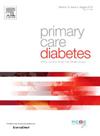了解初级保健提供者对糖尿病自我管理教育和支持的了解和看法。
IF 2.6
4区 医学
Q3 ENDOCRINOLOGY & METABOLISM
引用次数: 0
摘要
目的:美国糖尿病协会护理标准》建议糖尿病患者接受自我管理教育,但这些服务的利用率仍然很低。本研究探讨了初级保健提供者对糖尿病自我管理教育和支持(DSMES)的认识和看法:研究设计:本研究以理论领域框架为基础,采用聚合混合方法进行研究设计,首先对医疗服务提供者进行调查,然后对特定的医疗服务提供者子样本进行半结构化访谈。调查表通过 REDCap 发布,访谈内容逐字记录和转录:共有 140 名初级保健医生回复了调查(回复率为 37.63%),17 人参加了访谈。正确选择 DSMES 转诊时间点的平均知识得分率为 70.35%。在与医疗服务提供者的访谈中出现了五个主题:程序性知识、能力、信念、强化和文化规范。医疗服务提供者希望与 DSMES 项目进行双向交流,如果他们有转介的文化规范,则更有可能进行转介:医疗服务提供者对转介到 DSMES 的适当时间了解有限,但表示愿意转介。他们强调了为患者提供适当的自我管理教育和支持的重要性。本文章由计算机程序翻译,如有差异,请以英文原文为准。
Understanding primary care provider’s knowledge and perceptions of diabetes self-management education and support
Objective
The American Diabetes Association Standards of Care recommends that individuals with diabetes receive self-management education, but the utilization of these services remains low. This study explores primary care providers’ knowledge and perceptions of diabetes self-management education and support (DSMES).
Study design
A convergent mixed methods study design grounded in the Theoretical Domains Framework was conducted with an initial provider survey, followed by semi-structured interview of a purposeful sub-sample of providers. The survey was distributed via REDCap and interviews were recorded and transcribed verbatim.
Results
A total of 140 PCP’s responded to the survey (response rate 37.63 %) and 17 participated in interviews. The average knowledge score of the correct selection of DSMES referral time points was 70.35 %. Five themes emerged in provider interviews: procedural knowledge, ability, beliefs, reinforcement, and cultural norms. Providers wanted bidirectional communication with the DSMES program and were more likely to refer if they had a cultural norm of referring.
Conclusion
Providers have limited knowledge of the appropriate time to refer to DSMES but expressed a willingness to refer. They emphasized the importance of providing their patients with appropriate self-management education and support.
求助全文
通过发布文献求助,成功后即可免费获取论文全文。
去求助
来源期刊

Primary Care Diabetes
ENDOCRINOLOGY & METABOLISM-PRIMARY HEALTH CARE
CiteScore
5.00
自引率
3.40%
发文量
134
审稿时长
47 days
期刊介绍:
The journal publishes original research articles and high quality reviews in the fields of clinical care, diabetes education, nutrition, health services, psychosocial research and epidemiology and other areas as far as is relevant for diabetology in a primary-care setting. The purpose of the journal is to encourage interdisciplinary research and discussion between all those who are involved in primary diabetes care on an international level. The Journal also publishes news and articles concerning the policies and activities of Primary Care Diabetes Europe and reflects the society''s aim of improving the care for people with diabetes mellitus within the primary-care setting.
 求助内容:
求助内容: 应助结果提醒方式:
应助结果提醒方式:


